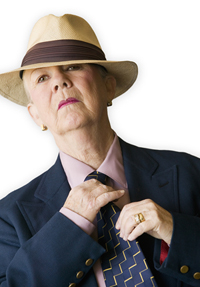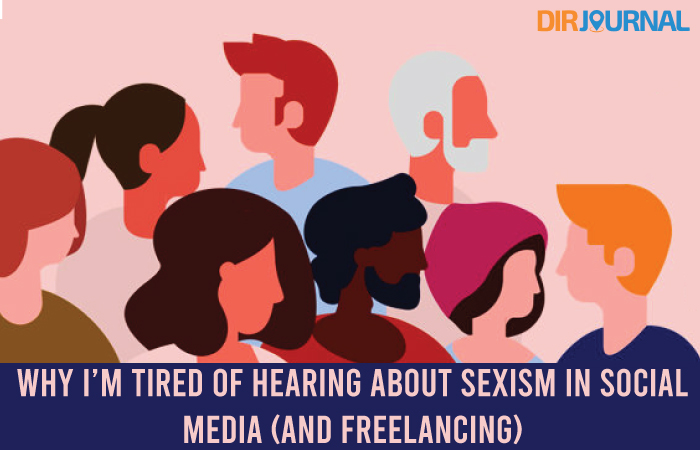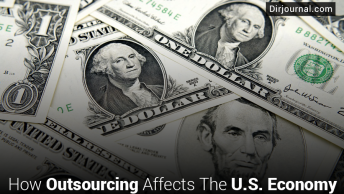
When this post topic was agreed upon weeks ago, I had a very specific plan in mind. I wanted to talk about the constant claims of sexism in social media that I hear from colleagues — not enough women presenting at conferences, not enough women published on social media topics in journals, etc.
However, the issue of sexism in business on the Web recently took a different turn in the blogosphere — Freelancer James Chartrand of Men With Pens announced that he is actually a she. I’m not going to get into all of the details here. There are plenty of places where you can learn more. In essence though, “James” was struggling to land the kind of work she wanted, so she decided to use a male pseudonym. Income rose drastically. Now bloggers all over the freelance, blogging, and social media niches are attributing that success to gender bias.
I think they’re full of crap.
A Bit of Background
Just to be up front, I’ve never been a fan of James Chartrand. I never cared for the Men With Pens blog, and was never a regular reader. So unlike clients, closer colleagues, and regular readers of the blog, I don’t have the potential issue of feeling personally betrayed by the lie.
That said, as much as I wasn’t a fan of James, I always respected the fact that “he” was willing to speak his mind openly whether or not I agreed with him. I love people who speak their mind and tell the truth as they see it without constantly worrying about what everyone else thinks of them.

That respect is gone. James was never that person. She wasn’t speaking her mind freely and openly. She was hiding behind a penis. Her opinions were never truly presented as her own, and speaking your mind while wearing a mask simply doesn’t deserve the same kind of respect. I’d much rather have read material from a ballsy woman taking a risk than a coward.
I don’t know how accurate James’ single mom story is. I will say that if it’s true I do genuinely feel bad that any women felt they had to adopt a male persona (not simply a pen name) to make more, or enough, money.
I don’t consider myself a feminist, at least in that I don’t make it my mission to improve the situation of females as a whole. Instead I’m a big believer in taking personal responsibility for your own success and failures. I know many successful female freelance writers. I know plenty of successful male freelance writers. I also know quite a few of both sexes who struggle to get by. I know men who have blogged as women. We have an example here of a woman who blogged as a man. There are also both men and women who blog under pseudonyms without undergoing a virtual sex change. Success in this kind of work doesn’t seem to be heavily gender-specific at all. I think there’s much more to the story than the gender bias issue everyone seems to be talking about.
You’re Your Own Harshest Critic
Look. I don’t buy into all the “visualize yourself as a success and it will happen” crap. Is confidence a part of the equation? Absolutely. But so is everything you do with that confidence. Knowing you deserve more isn’t enough. Knowing you’re qualified for a gig isn’t enough. Plenty of other people probably are too. It’s a part of your job to exude confidence and demonstrate value to clients in your pitch.
I have to wonder how much James’ (she hasn’t revealed her real name yet) perception of gender bias in the freelance world influenced how she behaved as a woman. I also have to wonder how her confidence, approach, tone, and marketing changed when she donned the new man suit. You can’t be two different people but still remain exactly the same.
By James’ account she was going through a pretty desperate time. How many desperate people really put their best foot forward in the freelance market? It would be incredibly difficult to put your focus squarely on a client’s needs when your own needs are so dire. I doubt anyone could realistically say that there isn’t some level of relief in taking on a new persona — getting to step outside your real life and worries to try something new. Don’t try to tell me that had absolutely no effect whatsoever on how James presented him/herself. I don’t think any level-headed person would buy that line.

You can see what I mean by visiting Men with Pens (or even just taking a look at the logo on the right). One of the things that always turned me off of the blog was the hyper-masculinity of the design. It had little to do with the niche. The entire package felt like an overcompensation issue. And it apparently was. It’s not exactly the kind of image a woman would go for if writing as an actual woman. That fact alone shows that the marketing approach changed.
Still, others flocked to the site (and to hire James). Why? Because Men With Pens got something very right — branding. Not only did James’ pen name have a nice flow in and of itself, but Men with Pens presents a pretty straightforward image of what you’re going to get. Did James’ estrogen-laden marketing efforts have the same branding benefits going for it? I highly doubt it — but without the whole story from Ms. Chartrand no one can really know. And that lack of information is precisely what makes gender bias seem so plausible, at least until you put on your critical thinking cap and look at the bigger picture.
I really wish the online writing, blogging and social media communities would put the emphasis where it belongs — taking responsibility for your own success rather than feeling the need to play the role of victim. There’s nothing wrong with using a pen name. But when you have to pretend to be an entirely different person to improve your situation, that’s not taking responsibility — it’s playing a game. I do understand that desperate times call for desperate measures, but the sad thing here is that we’ll never know if James could have been equally successful just being herself if she would have simply worked on the confidence and rethought her personal branding.
How much do you think confidence based in anonymity played into James’ improved success? What about branding? And if you want to blame it all on gender bias, then how do you explain the vast group of successful female freelance writers both on the Web and off? I’d love to hear your thoughts.














[…] Why I’m Tired of Hearing About Sexism in Social Media (and Freelancing) (my response to the previous post) […]
Jenn,
This whole controversy surprises me because I owned a business 30+ years ago when a woman owning a business was much more challenging. When I went to a Chamber of Commerce or similar meeting, often I was either the only woman present or one of only a handful of women. I was also younger than most other business owners, making it even harder to get professional respect. However, I did business as an individual entrepreneur, not as a woman, and I related to other businesspeople as fellow entrepreneurs, not as men. My competitors were all male, some of my employees were male, and most of my customers were male. When I bid on a job, I just presented my credentials and my quote in a matter-of-fact, professional manner. If the response was negative, I moved on and didn’t throw a pity party.
One little trick I learned that helped—perhaps only in my own mind, but I think in reality—was to address my older male colleagues by their first name. This was back in the day when more formality (Mr. Jones, Ms. Ammann) was common. But someone gave me the advice that immediately getting on a first-name basis put us on the same level.
I succeeded in business, not because I was a woman or in spite of being a woman, but because I worked hard and was good at what I did. My company was one of the largest woman-owned businesses in the city and one of the top three businesses in my industry (interior landscaping). When women today complain that it’s hard to succeed, I wonder how they would have managed in earlier times when it was much tougher for women. And since I’ve been a freelance writer, I’ve never felt the slightest discrimination.
Like you, integrity and trust are essential to me. I can’t imagine living a life of deceit. Then again, I’m not a fan of flamboyance and in-your-face attitudes either. I’m more comfortable with professionalism.
The day after James “came out,” I wrote a blog post applauding her resilience in the face of adversity, being that I’m a mom who has also struggled as an online entrepreneur while raising kids on just MY income. But now I admit my feelings are mixed.
As I thought, about it more I wondered what if I started pretending to be a black man, a whit woman, a white man or some other persona that does not represent me to get started? It never occurred to me to take such drastic action, and I was struggling very much like James when I first got started too.
Like Lillie who commented before me, I’ve honestly never felt discriminated against in business probably because I’ve been too busy working hard to build relationships, my reputation and a brand. I’ve only been an entrepreneur for a couple of years, so although it’s still very much a struggle at times, I do reap the rewards of consistent hard work.
I can only assume that James’ story is true (although I understand given the circumstances why some might question whether or not it truly is); I agree that it’s sad that anyone would feel pushed to go to such lengths just to support their family.
Very interesting article, Jennifer. I think you’ve nailed it on the head with the confidence issue–she created a persona to hide behind, and perhaps only then was she comfortable enough to share her true feelings and gain a following.
So many articles are written about the fact that women don’t get paid at equal levels as men for similar work. What they fail to address, though, is that women are much less likely to ask for a pay raise.
I hope she takes some responsibility for this and alters her message to other women in the workplace.
Lillie – Working hard is definitely a key. Women prove every day that working hard can help them achieve pretty much anything. There’s really no substitute for taking responsibility for your own success, no matter how many people might make excuses or try to put the blame somewhere else.
Kimberly – While I feel it’s sad, I don’t consider it a very good excuse for the deception. There have been people saying things like “you do what you have to do when it comes to your kids.” Perhaps. And while the dishonesty is no less disgusting, I think you can at least justify what was done when you look at the family situation. However, that justification only goes so far. Once “James” was earning a decent living, it was no longer a matter of survival and trying to make ends meet for the kids. If there’s a good excuse, then she should give it… but instead there’s been a lot of falling back on the original reason (whether it had merit or not is besides the point), without accounting for the changing situation.
Susannah – I have no doubt that there are plenty of women who aren’t where they want to be in life. I know more than a few personally. But no matter how often they try to pass the blame off on others, the truth is that it almost always has something to do with the personal decisions they chose for themselves. People have a sense of entitlement — they want “equal” treatment to everyone around them (gender-based or otherwise), but many don’t honestly put in the same effort. Am I saying there’s no gender discrimination? Absolutely not. There is — towards both sexes. But it’s up to the individual if they choose to use it as an excuse for not succeeding or choose to work their asses off to succeed no matter what they happen to come up against.
And really, as a successful woman writer, I find it incredibly offensive when I see large groups of people dismiss the success of women who DID work hard under their own names to play the “gender bias” game. If you don’t like where you are, fix it. And fortunately, you don’t have to be dishonest to do that.
Wow. According to this blogger and commenters, there’s no sexism in the work place. No discrimination. So I guess there was no need to pass the Lilly Ledbetter Fair Pay Act earlier this year. What great news.
It’s so heartening to see so many women be so judgmental of this woman, and to discredit Chartrand’s personal experience and observations in the matter. I mean, hers/his is only a first-person account of a specific, unique situation with unusual circumstances. It makes total sense that everyone BUT Chartrand would know better than s/he what went on.
She can’t POSSIBLY have been in her right mind to think she was being discriminated against.
After all, she’s a woman. We have to correct her assumptions, and since the men are too afraid to take her down a peg, it’s up to the womenfolk.
Yes, that’s the lesson here. Go out on a limb and share your story of triumph over gender discrimination and watch your “sisters” publicly shame you.
“According to this blogger and commenters, there’s no sexism in the work place. No discrimination. ”
Read the post and comments again. That’s not what was said. You’re welcome to disagree. You’re not welcome to put words in my (or other commenters’) mouths.
“Yes, that’s the lesson here. Go out on a limb and share your story of triumph over gender discrimination and watch your “sisters” publicly shame you.”
Actually no. That’s not what she did. She didn’t just write under a pen name and triumph over whatever discrimination she felt she was a victim of at the time. She created an entirely new persona — big difference. She didn’t write under a name and let clients assume one thing or another. She came right out and blatantly marketed herself as a man — made it the foundation of her marketing strategy. She even posted about being a dad while criticizing mommy bloggers (talk about sisterhood).
She also then proceeded to preach transparency to others. She and her then-partner both were women writing under male personas. If you read more about the background, you’ll find that the partner wanted to come clean earlier with their clients and audience, but James was the one who refused. This wasn’t some altruistic coming out. She only did because someone else outed her.
Had she taken the initiative to live up to the level of transparency she advocated for others and not tried to play the “poor me” card long after her situation changed, I might have a very different reaction. There’s much more to the story that what’s included in this one post. That’s why I linked people to further background.
You’re welcome to have your own opinions. I know many women won’t agree with mine. But from your post it sounds like no one could dare disagree with your stance on this without being the “bad guy” — either men out to take her down a peg or women publicly shaming their so-called “sister.” Let’s hear some stories of triumph that don’t involve being downright dishonest and a complete hypocrite, and you won’t hear any shaming from me.
You don’t need to tell me, it seems like social media is everywhere nowadays and you can’t get a break from it! Although information is being shared like never before, which is both a good and bad thing.
I respect your opinion. I respect your right to publicize your opinion. And I’m glad you posted. I happen to disagree with your perspective, because I view the situation as practical marketing to overcome a barrier that was limiting success. If what James did was a lie, then every ad for whiter teeth and fresher breath and shoes that make you more desirable must also be lies…yet we tolerate them, and even reward them. I see very little difference: it’s marketing in a free market society. Unpalatable? Sometimes. Real world? Yup.
Tom – Then again, that’s why we have laws about truth in advertising. The issue I have isn’t that she chose to market herself using the pseudonym. It’s the way the “coming out” is painting the picture of women as victims in a field where they have more opportunity to succeed than most. I’m sick and tired of seeing people make excuses for their shortcomings in business, but what’s infinitely worse when they then put those issues on an entire group of people, essentially belittling the success of the MANY women who have succeeded in the field before her. And marketing aside, there’s never an okay time to lie to your audience or clients, especially when it involves telling them to do A (be transparent) while you proceed to do B (lie to them). That’s just how I see it. I don’t see it as a simple case of real world marketing — there’s very little “real” about the entire situation unfortunately.
Jenn – Interesting take. I don’t know the full story and don’t have time to read up on it, but I feel like Men With Pens was an easy way/experiment for ‘James’ to ‘prove’ her point to herself and any others willing to use it as ‘proof’ of gender bias. Unfortunately, the experiment was unscientific since, as you pointed out, she changed her whole brand and voice. If all she had done was change her name to a male name and kept her writing voice & branding style in tact, I doubt she would have had the same result. On the other hand, if she had just changed her writing voice & branding style and not her name, she probably would have experienced similar success.
That’s the catch. Know your audience and market to your audience . . . if your audience is a bunch of men, don’t write like a self-pitying, gender bias claiming female, it’s not going to sell.
Lillie – Great story, I hope you are sharing it with the web community. We need more people like you in the world.
Callie – Lame comment. I’m sure there is a gender bias (due to men preferring writing/branding with a certain voice/style), just like I’m sure there is a Good Ole Boys network. Neither is a good thing if you’re not a part of the benefiting group.
Ever think maybe ‘James’ just did a better job of selling to his market than ‘Jamesette” ever did? That’s what it looks like to me.
Don’t get me started on why my brilliant wife refuses to charge her clients more . . . I’m sure it’s just gender bias driving down her compensation.
“On the other hand, if she had just changed her writing voice & branding style and not her name, she probably would have experienced similar success.”
I think that’s key. You can certainly be a successful female freelance writer. There are plenty of them out there earning six figure incomes, writing for nationally-known publications, etc. (just two possible measures of “success” based on different areas of freelancing). So marketing yourself while using a woman’s name in no way means you can’t succeed. I just find it sad that James’ choice to sport a new gender seems to have so many people forgetting that (not here so far, but elsewhere it’s fascinating how many people are willing to jump on the “I was born with a vagina, so woe is me” train rather than looking at their circumstances as individuals — including how they present themselves, market themselves, and frankly feel about themselves on the professional front.
I agree with you Jenn: success has little to do with hiding behind a male image, but rather is probably the result of a marketing re-think. I’m also tired of women whining about gender bias. If it does exist the thing to do is prove your worth–not whine. I’m sure I’ll get flack for it but in my (techie) niche I’ve never noticed gender bias.
The one thing I have learned is to walk, talk, learn, hear, see and be the truth. The truth of who you are.
Fran
Wow! The whinging never stops. It began in the 1970s with a vengeance and continues today. You find it in every area of life. Not enough women in academe, the military, the sciences, the police, the fire dept, the senate, the movie business, medicine, engineering, physics, sports, computing, leadership roles, etc., ad infinitum.
Sad how women feel the need to tear down other women for their choices. Still.
I disagree completely with most of this article.
I think the article is making a mountain out of a mole hill. What James did is not, and was not intended to be a broad (no pun intended) statement about sexism. Simply put, James was struggling in business and wondered if things would be different if she were a man. Who among us women has not wondered that at least once?
That said, I’d bet money that James’ performance was different as a man than as a woman… but not necessarily better.
Finally, as the child of a single mother who works/ed in a heavily male-dominated environment, and works her ass off, and is spectacular at what she does… my mom knows for a fact that she has frequently been paid quite a bit less than her male counterPARTS (pun intended). So if James found a way around that kind of bull—-, more power to her. If she was a man, no one would be judging her. Oh wait… isn’t that how all this started? 😉
If anyone decided to make a mountain out of a molehill, it was actually James. She made a conscious and strategic decision to announce the “news” not on her own blog to the target audience that should have mattered, but in a significantly bigger outlet (something you don’t do unless you’re looking for attention).
And while the initial announcement might not have been intended as a broad statement about sexism, comments she made after that announcement have been indeed. The Newsweek article linked above in the post is an example, where James very directly blames former lack of success squarely on sexism rather than taking personal responsibility.
Also keep in mind that when James was pretending to be a man, she penned several blog posts that were downright sexist themselves. One of the biggest issues in this situation wasn’t that James felt discriminated against, but that she acted like a complete hypocrite in the process of trying to overcome how she felt she was being treated (why it’s laughable when I see women commenting here about sisterhood, in defense of a female who demeaned women in a much broader stroke).
I SO wish I could be real life friends with all you CA runner girls I think Id have a blast running out there with you ladies. Im going to make a visit a part of my vacation plans once I start working again!
[…] Why I’m Tired of Hearing About Sexism in Social Media (and Freelancing) […]
“To err is human; to forgive divine.” Alexander Pope
I see that when this post was written — and most of the comments — the controversy was new and raw. I hope by now it’s blown over.
I don’t know whether James made some errors of judgment or not. I do think she believed, at the time, that she was taking personal responsibility by assuming the male persona. That must have been a heavy burden that only got heavier as she got more well known. It probably spiralled out of control until she no longer felt she could hide behind the pen name. Since I started with a quote, Sir Walter Scott comes to mind here: “Oh what a tangled web we weave, when first we practise to deceive.” Sounds like she learned this the hard way.
None of it takes away from the quality of her writing and content nor on her quite remarkable teaching skills. I have taken her Damn Fine Writing class (and written about the experience on my blog) and found it enormously valuable, and her interaction with the students in her class was genuine and generous. For that, I hold her in high regard.